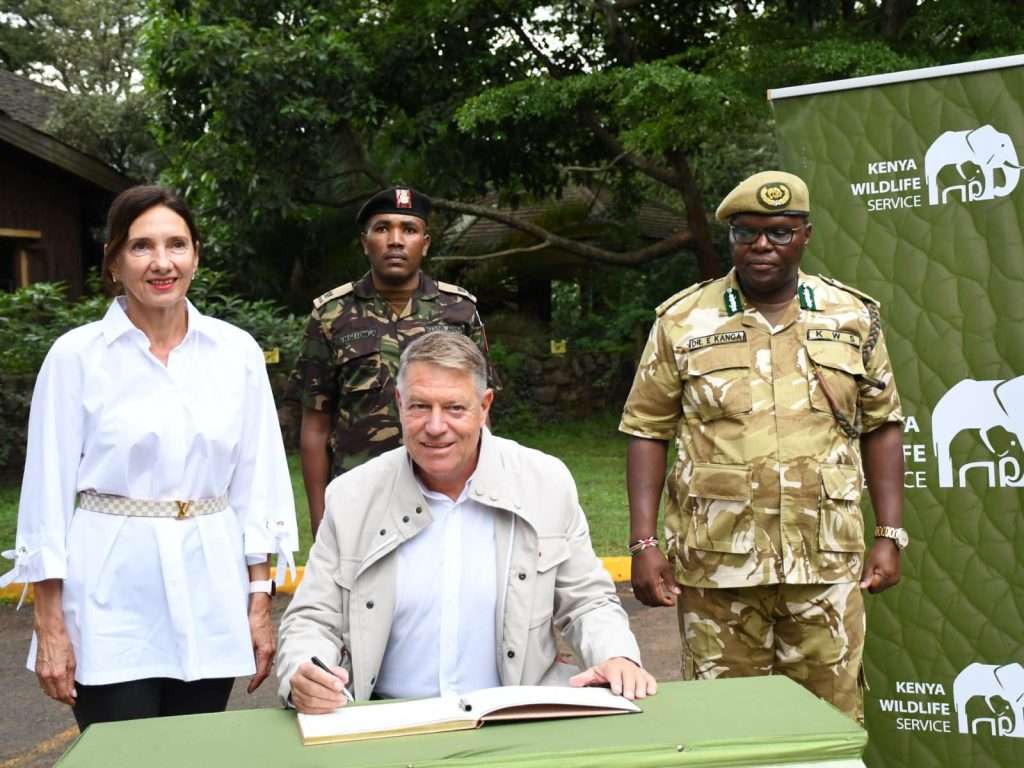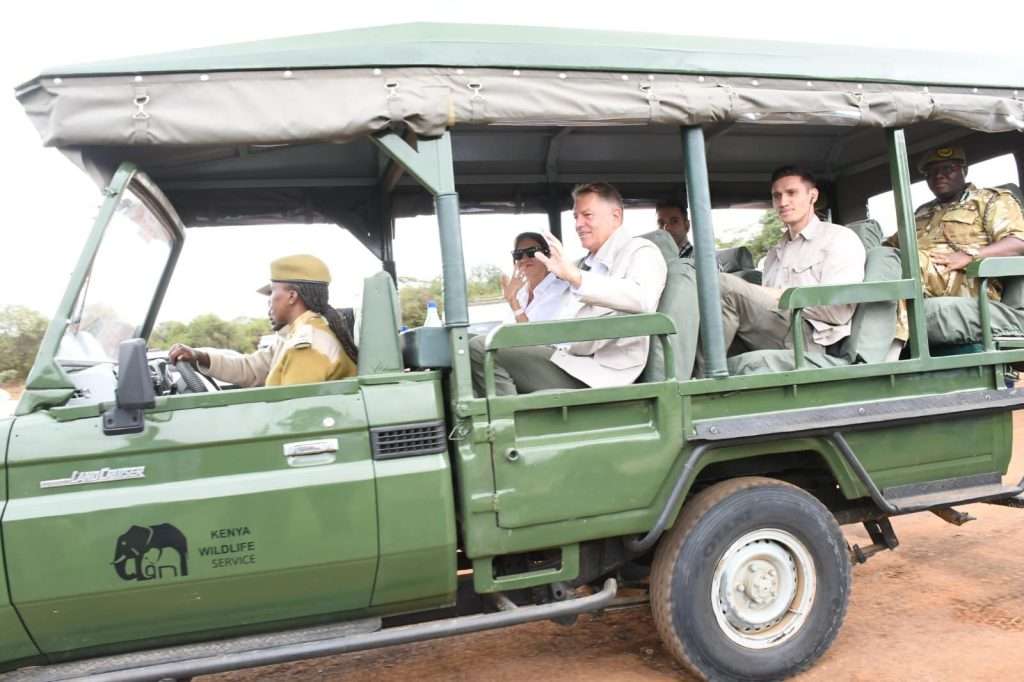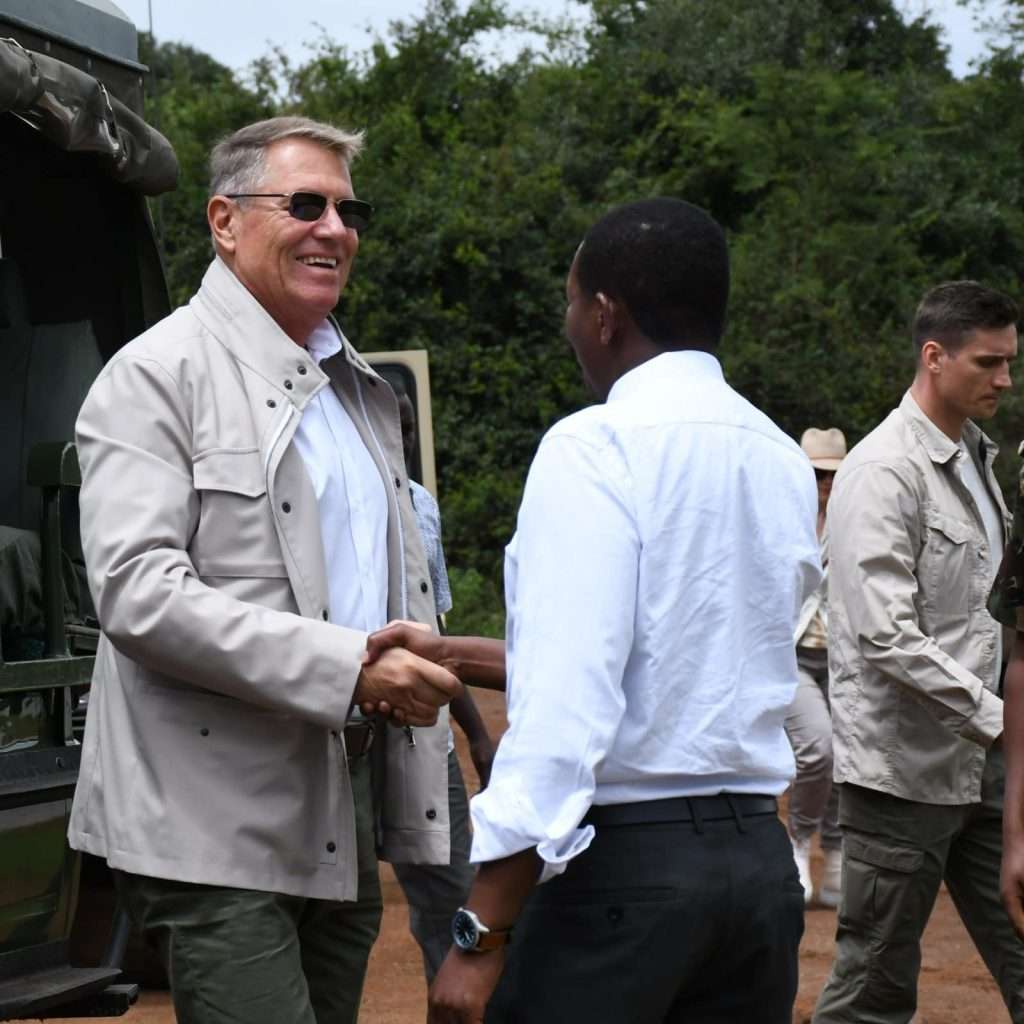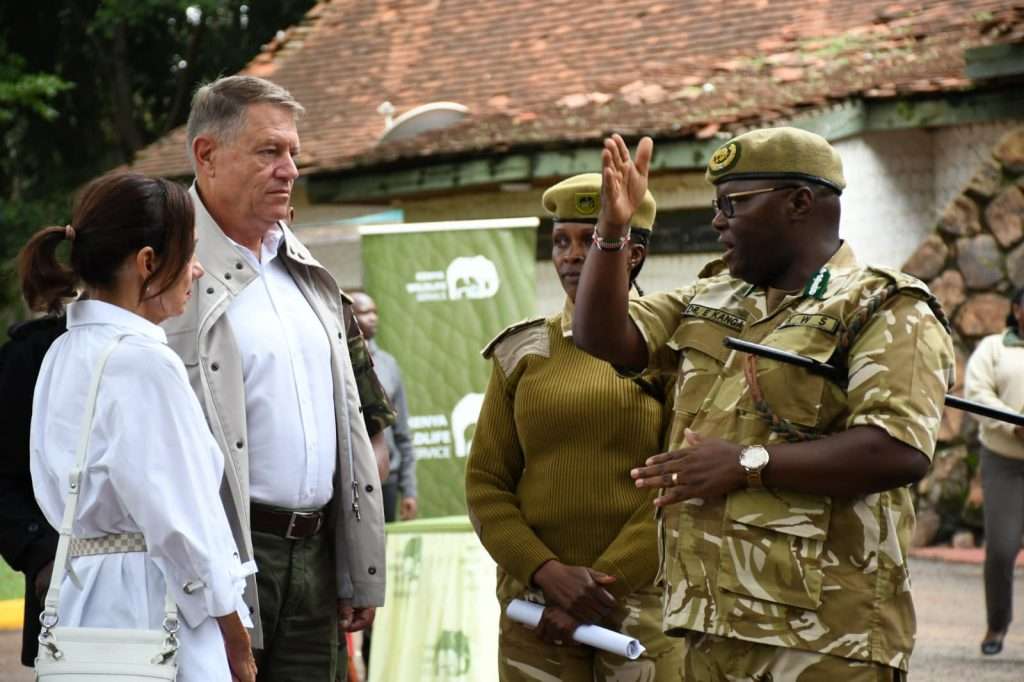
Introduction:
The visit of the distinguished Romanian President Klaus Iohannis and the First Lady Carmen Iohannis to Nairobi National Park marks a pivotal moment for the Ministry of Tourism and Wildlife in Kenya. Hosted by Hon. Dr. Alfred Mutua, Cabinet Secretary for the Ministry of Tourism and Wildlife, and Dr. Erustus Kanga, Director General of Kenya Wildlife Service, this visit aims to enhance bilateral ties and foster international collaboration in wildlife conservation. In this post, we explore the significance of President Iohannis’ visit and its potential impact on conservation initiatives in Kenya and Romania.
Highlighting Diplomatic Relations:
President Klaus Iohannis’ visit to Nairobi National Park serves as a testament to the growing diplomatic relations between Kenya and Romania. It underscores the shared commitment of both nations in addressing global challenges, particularly those related to wildlife conservation and environmental sustainability. Such high-profile visits lay the foundation for increased cooperation, knowledge exchange, and joint initiatives aimed at preserving the world’s natural heritage.

Exploring Nairobi National Park:
Nairobi National Park, a remarkable wildlife sanctuary located on the outskirts of Kenya’s capital city, takes center stage during President Iohannis’ visit. Notably, it is the only national park in the world nestled within a capital city’s boundaries, symbolizing the harmonious coexistence between humans and wildlife. By hosting the Romanian President and the First Lady within this unique ecosystem, Kenya showcases its dedication to conservation and the protection of its wildlife.
Strengthening Conservation Efforts through Bilateral Talks:
President Klaus Iohannis and First Lady Carmen Iohannis engaged in bilateral talks with Kenyan officials, including Hon. Dr. Alfred Mutua and Dr. Erustus Kanga. The discussions revolved around sharing best practices, technological advancements, and expertise in wildlife management and conservation. These dialogues aim to foster collaboration in crucial areas such as research, anti-poaching initiatives, habitat restoration, and sustainable tourism development.

Preserving Endangered Species:
Both Romania and Kenya face challenges when it comes to conserving endangered species. During the visit, significant emphasis was placed on the shared responsibility of combating wildlife trafficking and protecting vulnerable species. By leveraging their respective expertise and resources, both countries can bolster their conservation strategies and contribute to global efforts in safeguarding iconic wildlife, including elephants, rhinos, lions, and giraffes.
Promoting Sustainable Tourism:
Sustainable tourism plays a vital role in supporting conservation efforts and benefiting local communities. President Klaus Iohannis’ visit to Nairobi National Park highlights the potential for collaboration in promoting responsible tourism practices. Through the exchange of ideas and experiences, Kenya and Romania can develop sustainable tourism models that generate economic benefits while minimizing negative impacts on wildlife and their habitats.
Education and Awareness:
The visit underscored the significance of education and awareness in fostering a culture of conservation. President Klaus Iohannis and the First Lady Carmen Iohannis had the opportunity to interact with local communities, conservationists, and researchers, gaining valuable insights into the challenges and successes of wildlife conservation in Kenya. This exchange of knowledge can inspire similar initiatives in Romania and cultivate a deeper appreciation for wildlife and nature among citizens of both nations.

Conclusion:
President Klaus Iohannis’ visit to Nairobi National Park represents a significant milestone in strengthening bilateral relations and fostering collaboration between Kenya and Romania in the field of wildlife

